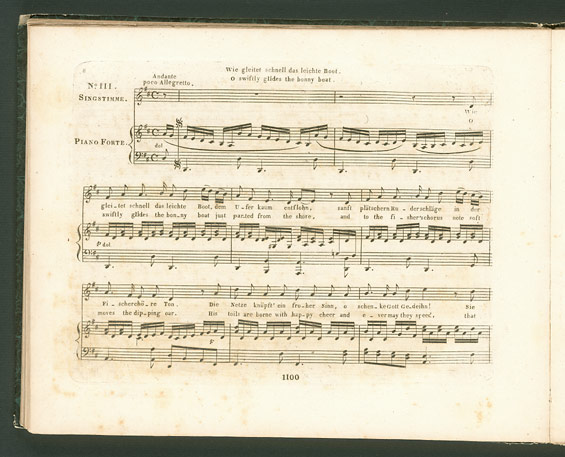Beethoven's relationship to Great Britain
Folk song collector George Thomson
After agreeing on a remuneration of four ducats for each song adaptation in 1814 Beethoven requested a subsequent payment for three Scottish songs delivered later (Thomson regularly asked Beethoven to facilitate his compositions). In a letter from March 1818 Beethoven claimed he had only received three ducats instead of the determined remuneration. Thomson, however, replied that the bill issued by the Fries bank certainly stated 12 ducats. Either Beethoven was mistaking or Fries had written the bill only after Beethoven had asked him to do so.Beethoven also mentioned that he had the English texts be translated, thus it can only be pieces that were already published in the "Irish Songs" or "Welsh Songs". Probably the translations were done for a planned publication by the Vienna publisher Steiner. Beethoven offered Thomson piano variations on these melodies at a price of nine ducats each.
The fifth and last volume of the "Scottish Songs" series published in 1818 contains apart from Beethoven's 25 Scottish songs op. 108 four songs by Joseph Haydn and the quite popular cantata "The Jolly Beggars" by Robert Burns with a melody by Henry Rowley Bishop. Beethoven had rejected the composition before. Thomson had asked both to compose the violin part in such a way that it could also be played with a flute. He hoped this would increase sales. The sales of Beethoven's song adaptations were far below the sales of the first editions featuring adaptations by Haydn and Kozeluch. The editor believed Beethoven's complex style was the reason for the decreased revenue. In his last letter to Thomson from May 1819 Beethoven, now angry at Thomson for his ongoing request for simplicity, explained that he could not regard this as a criterion and that he hardly found the courage to call the pieces his own. As already mentioned Beethoven, who was quite an adept businessman in using his compositions several times, later tried to sell the compositions also on the Continent. He did so in Berlin in 1820. Publisher Adolph Martin Schlesinger showed an interest in the songs and arranged a German edition in 1822. One copy created by two different copyists, reviewed and corrected by Beethoven, was used for the engraving. Franz Oliva, a friend of Beethoven and his voluntary secretary, underlaid the English text of the songs. Schlesinger commissioned Samuel Heinrich Spiker, publisher and librarian of the Berlin Royal University, to translate the text into German for later addition.







